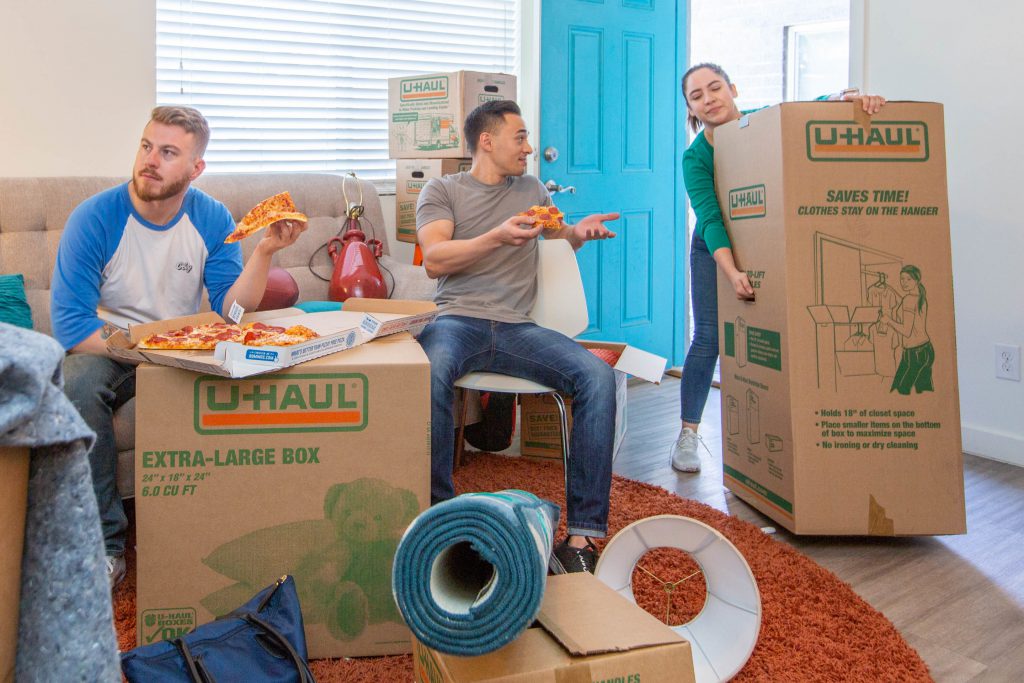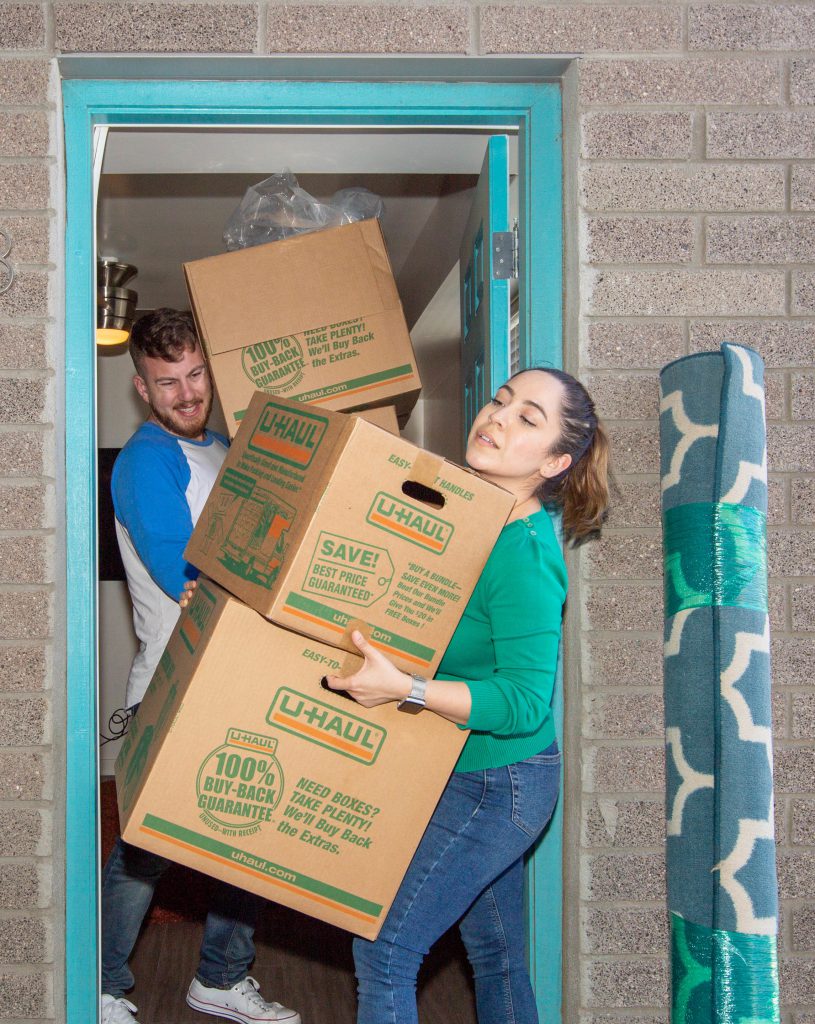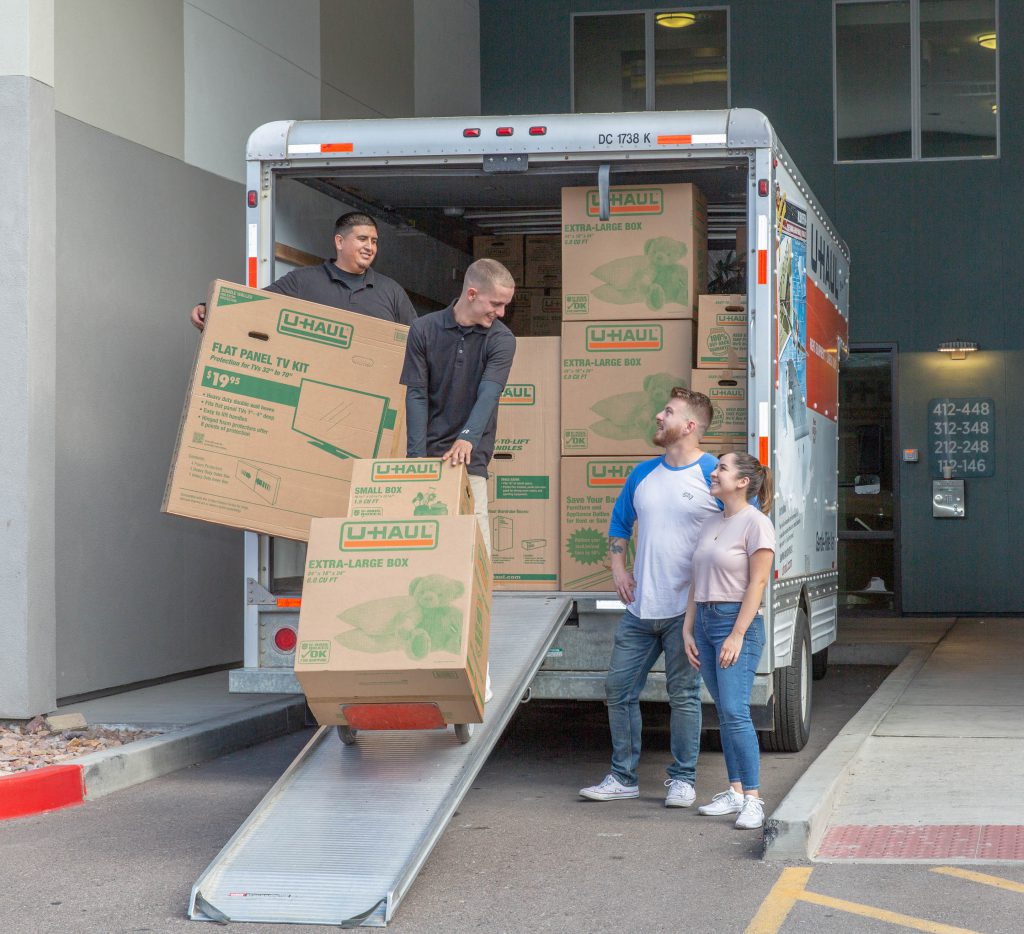
Moving can be such an exciting experience, but expenses can quickly add up without advanced planning and budgeting. No matter the budget, how can you get the most out of your wallet when it comes to your move? From travel and lodging to transporting your belongings to your new home, planning will help keep you and your finances on track. Before your move, up until you are settled, there are essential budget considerations to make. Avoid surprise (and potentially expensive) costs from creeping up on you! Here are some budgeting tips for moving out and moving in.
Budgeting for Moving Out

- Pending bills for your old home: That includes utilities, gas, electricity, and any past due or cancellation fees. You may also have some deposits to add to your budget!
- Cleaning Fees: If you are renting your home, consider renting a carpet cleaner or a house cleaning service to maximize the amount you receive back on your deposit.
- Lease termination fees: In some instances, you may be required to pay a fee upon termination of your lease. This is often the case if you are vacating before the date listed on your rental agreement.
- Moving supplies: Plan to secure your moving supplies and save money. There are some great programs available to trade and reuse moving supplies. For example, U-Haul Box Exchange® allows you to buy and sell boxes from other members within your community. In some cases, you can even get boxes for free!
- Storage fees: If you are downsizing but don’t plan to get rid of all your extra furniture, you will need a place to store it. It is best to reserve your storage facility at least four weeks before your move.
During Your Move

- Gas and lodging: Getting from point A to point B may be a short journey, perhaps to a nearby city. But, if you are moving across the country, the cost of gas and lodging during the trip can be a significant portion of your budget. An excellent tool for estimating your fuel cost is a fuel cost calculator. Pro-tip, book hotel rooms in advance to secure a lower rate.
- Transportation: If you are driving a moving truck or flying to your new destination, it’s crucial to prepare how you will arrange transportation of your everyday vehicle in advance. If you are hiring for shipping or drive-away service to your new locale, account for this expense in your budget.
- Pre-Screening: If you are traveling to your new city before you move, interviewing for a job or hunting for a home, count these trips into your budget.
Budgeting for Moving In

- Hire movers, or do it yourself: This can be the million-dollar question of your move (or, at least, a significant chunk of your budget). The answer depends solely on how much labor you are willing and able to do independently. A complete do-it-yourself move is the most affordable option and will entail renting a moving truck and packing or unpacking it yourself.
- Moving Help: Hire moving help to assist with loading and unloading.
- Full-service moving: The most expensive option, but all you will need to do is transport yourself to your new home. They will take care of the rest!
- Move-in fees: The fees to get up and running at your new place can be significant, depending on how much you need. If you are renting, there will likely be a security deposit required. Beyond that, service set-ups, such as basic cable, water, electricity, trash, and internet connections, will often require an installation or set-up fee.
No matter how hectic the moving process can seem, planning will help you avoid unnecessary costs and stress. Begin planning as early as two months in advance to save the most during your move!
For more moving tips, follow us on Facebook, Instagram, Twitter, and Pinterest!



